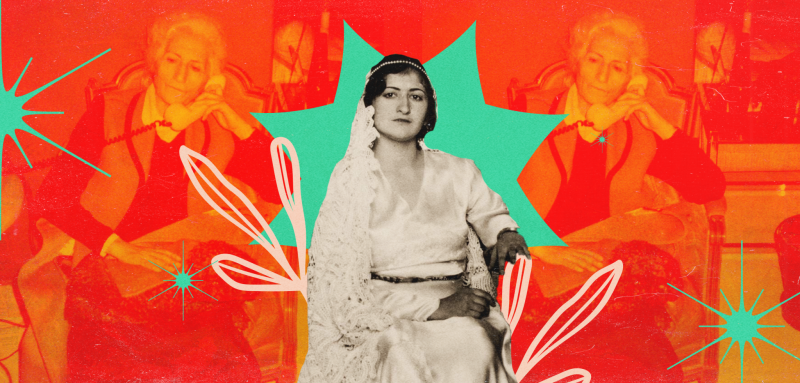"In the heart of Tehran, there was a luxurious and modern Western-style house, with a hall that could accommodate about 60 guests, furnished with a valuable handmade carpet and shelves carrying five thousand books, where a very beautiful and modern young lady from a royal bloodline would host a group of contemporary thinkers, poets and writers in literary and dialogue sessions, amidst an aggravated political atmosphere by the outbreak of World War II. Some contemporary literature was formed in those meetings that remind us of the halls of Paris. This young lady is Maryam.”
This is how veteran journalist Masoud Behnoud describes part of the activities of the "Red Princess", one of the most important contemporary women present in the political and literary scene in the history of Iran, as a key member of the Central Committee of the Communist Tudeh Party.
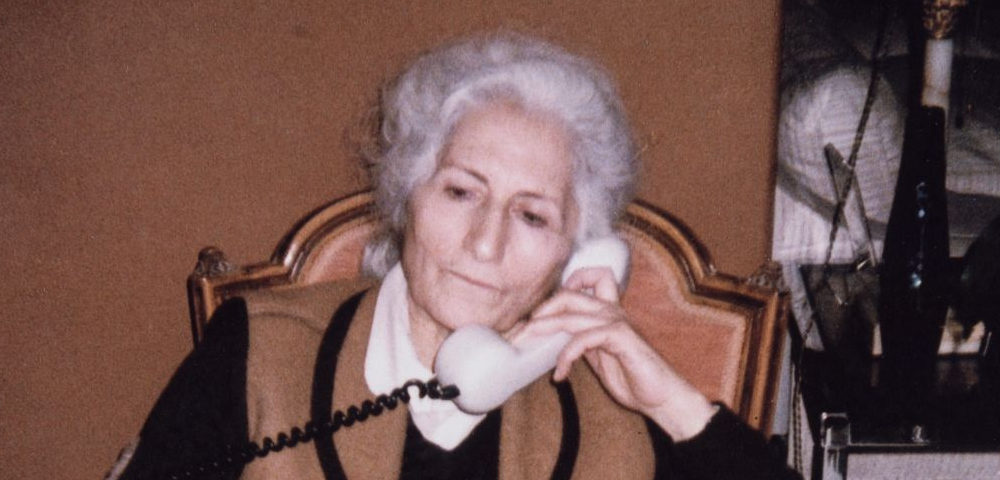
Princess Maryam Farman Farmaian was born to an aristocratic family of the Qajar dynasty in 1913 and grew up in a number of royal palaces. Despite a dominant patriarchal system, the family insisted that their daughter learn to read and write. Maryam studied at an Iranian school and mastered the Persian and Arabic languages, and also attended the French school in Tehran.
“Maryam is an intelligent, courageous and adventurous woman, and I believe we can look for her likeness in myths and legends,” one Iranian writer describes her. The poet Rahi Mo'ayyeri said, "Maryam, you who raise the red flag, no one is like you, Red Maryam”
Maryam explains in a documentary that she used to go to Tehran's bookstores and buy a large amount of books, especially French ones. She would then dive into reading and learning about literature, history and politics.
As a teenager, the ruling dynasty changed from the Qajars to the Pahlavis, and Reza Pahlavi became Shah (King) after he had been prime minister. Her father decided to have her marry the son of the Speaker of the National Assembly in a political marriage to preserve his influence with the new statesmen. At the age of sixteen, Maryam was married to General Abbas Gholi Esfandiary.
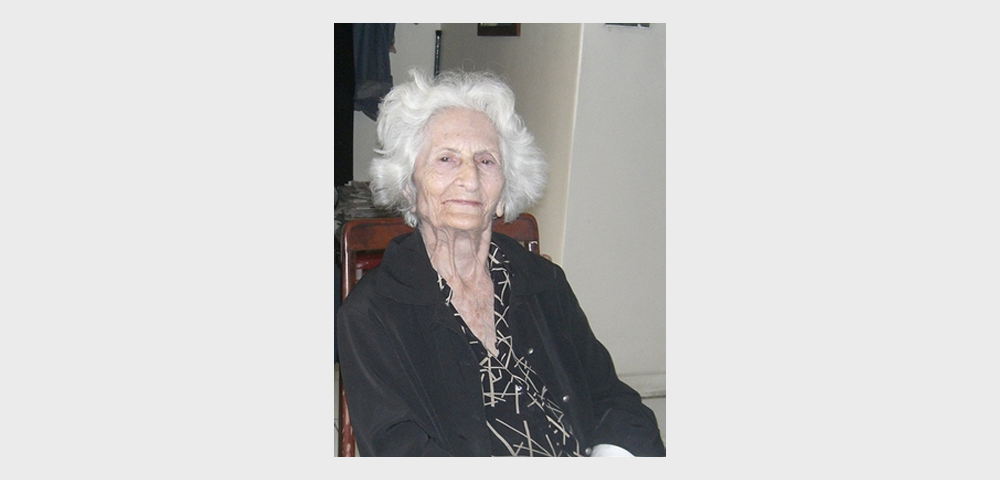
The age difference between Maryam and Abbas was 26 years, and after she gave birth to two daughters from him, and because of a great lack of harmony between them – she liked reading and books while he was not comfortable with that – she decided to separate without officially divorcing, out of respect for her father. Her father’s attempts to repair their relationship did not succeed, after Reza Shah humiliated him, killed his son, and took a lot of his property and wealth. After the death of her father, Maryam officially divorced in 1943, a decade after her marriage.
Literary activity
Maryam returned to her parents' luxurious home, then World War II broke out, Britain and Russia occupied the country, and Reza Shah stepped down, making his son Mohammad Reza King of Iran.
At that time, the political atmosphere opened up after a period of suffocation, restrictions and dictatorship, and Maryam began hosting literary sessions at her family home, attended by leftist Persian literary figures, such as the novelist Sadegh Hedayat, the linguist and poet Parviz Natel Khanlari, the communist poet and theorist Ehsan Tabari, the lyricist Rahi Mo'ayyeri, and many others.
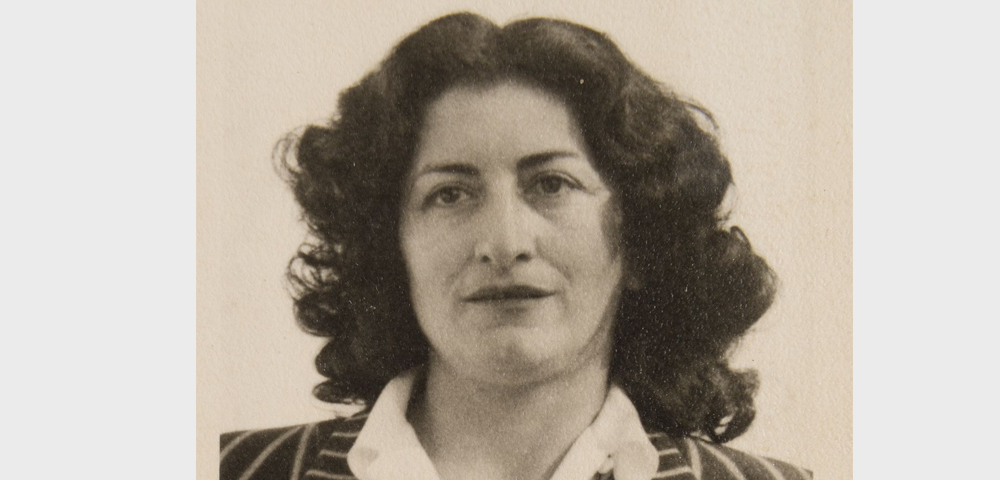
Some considered these weekly meetings to be the beginning of contemporary Iranian literary forums, from which the princess entered the political scene seriously. After getting acquainted with leftist ideas and the Tudeh Communist Party, she found herself as a supporter of the party. She said, "I was looking for a place that respects women and I found that in the Tudeh Party.”
“Maryam is an intelligent, courageous and adventurous woman, and in my opinion we can look for her likeness in myths and legends,” one Iranian writer describes her, as the young poet Rahi Mo'ayyeri said when she joined the Communist Party: "Maryam, you who raise the red flag, no one is like you, oh Red Maryam”.
Love, struggle, and sacrifice
The poet Rahi Mo'ayyeri fell madly in love with Maryam, and was keen to attend her literary sessions. Inspired by that love, he went on to write his finest lyrical love poems, and the two became involved in a relationship until Maryam asked him to write critical articles in newspapers.
The charming princess entered the leftist feminist movement, becoming an accomplished speaker among the crowds until she reserved a special place for herself and her reputation began to spread among everyone. At the beginning of the new rule of the young king and the return of her brothers to government positions, Maryam’s family was against her political activity. She even abandoned her famous family name, which carries a royal meaning, out of respect for the people and her activity against the Shah, and preferred to use the name of her grandfather, to start her new identity as "Maryam Firouz".
As for the media institutions, they were shocked by the decision of the young lady who chose a life of activism and struggle over a comfortable life. Le Monde newspaper nicknamed her the "Red Princess", as she spent the money she inherited for the sake of her goals, particularly for the sake of the Tudeh Communist Party.
In the meantime, she got to know the architect Noureddin Kianouri, who was responsible for the secret movement in the party, and is four years younger than her. There was a lot of talk about love blossoming between the two, and then they got officially married. She was, at the time, an active member of the women's organization, the women's wing of the communist party, following women's demands and calls for equality and social and political rights. She also began writing many reports and articles in the party's magazine, Bidari-e Ma (‘Our Awakening’).
"At that time, Maryam joining the Communist Party was a good catch, given the huge amount of money she spent on this course," writes Iranian journalist Masoud Behnoud, who tells her life story in his book “These Three Women”. He mentions that she left a life of luxury for a political life full of homelessness and imprisonment that reached the death penalty, becoming the first Iranian woman to receive this punishment in modern history.
Despite the opposition of some in the Communist Party leadership who held reactionary ideas about the role of women, Maryam became part of the advisory team of the party's Central Committee in 1948.
A secret life in the streets of Tehran
A member of the party carried out a failed assassination against the Shah in early 1949, leading to banning the party's activities, and the arrest of many members, including her husband Noureddin. A large group of partisans fled abroad, making this incident the end of the Communist Party's public activity inside Iran. Security authorities failed to arrest the rebellious princess.
She was tried in absentia and sentenced to life imprisonment. She continued a secret life for years, hiding under the abaya and wearing torn shoes in order to continue her political struggle and partisan relations with those who remained in Tehran and to check on the families of detainees and support them under the difficult security conditions. Some attribute the failure of the royal court to detain her or prevent her from working, to her knowledge of the secret places of the party within the capital through her husband, who headed this wing, and through her previous royal lineage, as her family, descended from the Qajar dynasty, still enjoys positions in the Pahlavi monarchy.
As the cousin of Prime Minister Mohammad Mosaddegh, she was the link between the latter and the leadership of the Communist Party, when the military coup took place in 1953 against the nationalist Mosaddegh, who nationalized the oil industry and limited the powers of the king.
Life in exile
"Maryam is a truly remarkable woman. She sold everything she had little by little and gave it to the party. During the period of life in secret, she paid for the party's expenses, and when I got out of prison, Maryam was spending on it, because I had nothing,” Noureddin explains the role of his wife.
Following seven years of life in secret, she left the country for Russia, then lived with her husband in East Germany, until she became a French professor at the University of Leipzig after earning a doctorate in the French language.
She did not give up on her political project, and continued her struggle from abroad, writing many reports and articles in European magazines, and working in an Iranian opposition radio station abroad. She also became a member of the Central Committee and her husband Noureddin became the party's secretary-general.
An unwelcome return
After the victory of the Iranian revolution against the monarchy in 1979, and the return of all opposition forces to the country, Maryam and Noureddin returned following an absence of nearly 23 years. She began her party activity, founded and chaired the Democratic Organization of Iranian Women, and launched the magazine JAHĀN-E ZANĀN, meaning ‘Women's World’.
She urged women to be present in society, attain their social and political rights, and defend the young revolution led by cleric Ayatollah Khomeini.
Following the liquidation of the various political wings by the Islamic movement as it gained complete control of the country, the activities of the Communist Party was banned in 1982, three years after the victory of the revolution, under the pretext of working on a coup against the revolution.
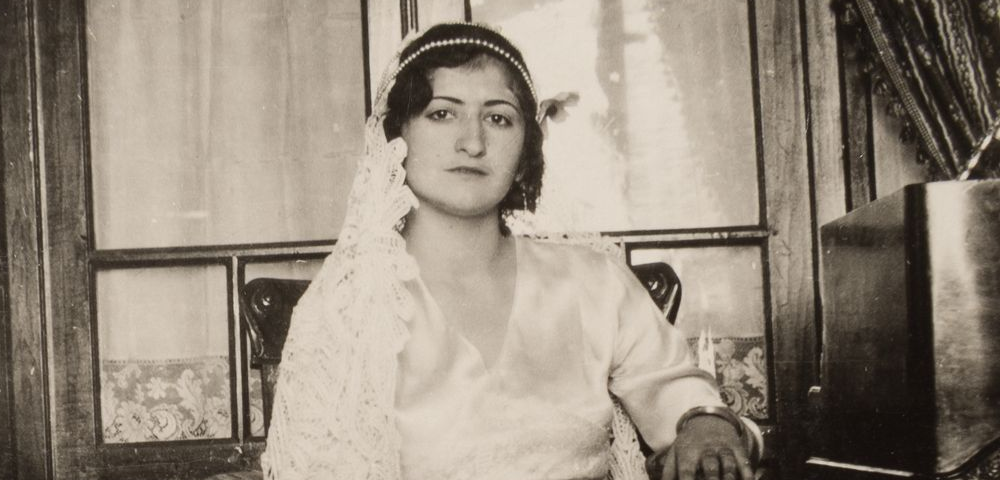
Maryam was arrested and imprisoned at the age of seventy, and her husband was also arrested. She remained in prison for ten years, and was tortured in the most severe physical and psychological ways. In a documentary made near the end of her life, she says that in prison she memorized a third of the Quran due to how frequently she read it, "and with this, I was protesting against the Islamic interrogators and prison officers, fighting their actions with their Quranic verses."
In a letter sent from his cell to Ali Khamenei, the Islamic Republic's new leader after Ruhollah Khomeini, Noureddin details his torture and that of his wife and their daughter. He says, "My wife Maryam was whipped so much that seven years later, her feet still hurt during sleep. This was the (legal) torture that was being carried out, accompanied by various insults and obscene curses (whore, the leader of prostitutes...) They also slapped her and beat her on the head until she lost hearing in her left ear. I remind you that she was 70 years old at the time."
In a documentary on her life, she says that in prison she memorized a third of the Quran due to how frequently she read it, "and with this, I'd protest against the Islamic interrogators and prison officers, fighting their actions with their Quranic verses"
Despite all this, she did not give up her beliefs and did not betray any members of her party under pressure in order to remain loyal to the party. Following years of solitary confinement, the doctor recommended that she needed immediate medical attention, so she was released from prison for treatment and then stayed with her husband under house arrest in Tehran.
After a lot of harassment that party members were subjected to and the execution and arrest of many communists, accompanied by the death of some under torture, Maryam and her husband, who started the reform movement under President Mohammad Khatami, participated in the elections and supported the reforms, and as a result, the restrictions placed on them were eased.
Noureddin died in 1999. Maryam died at the age of 94 in Tehran in 2008. In a documentary that was aired after her death, the director asked her, "Are you still an atheist?" She replied with, "It's none of your business to ask me about my faith". In the final shot of the film, she says, "I never regret the path I took."
Raseef22 is a not for profit entity. Our focus is on quality journalism. Every contribution to the NasRaseef membership goes directly towards journalism production. We stand independent, not accepting corporate sponsorships, sponsored content or political funding.
Support our mission to keep Raseef22 available to all readers by clicking here!
Interested in writing with us? Check our pitch process here!
